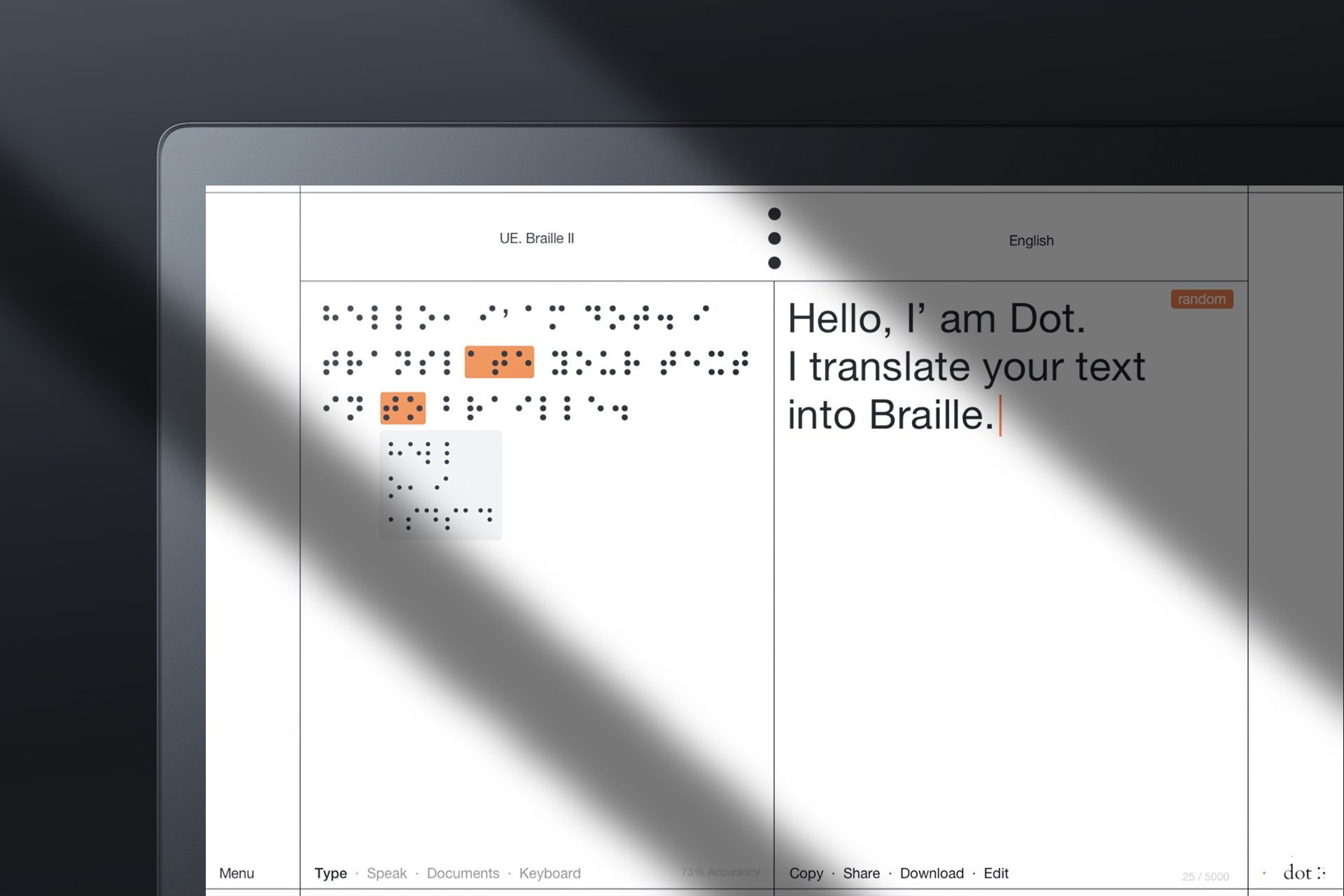
Dot Translate. The First Braille Translator Based on AI.
While we are all used to having access to almost any content, the situation is very different for the 285 million blind and visually impaired people worldwide: Only 3% of all text content is available in braille, because translation is so complex that it requires input by human experts, which makes it not accessible for individuals and not profitable for publishers in most cases. There is no alternative to braille, especially when it comes to education: 90% of people who can’t read braille are unemployed.
Dot Translate is the first braille translator based on AI. It can translate any digital text to braille on its own, at near-human accuracy. Because it’s being trained with millions of most accurate human translations.
Braille translation is highly complex: Grade 2 Braille – the standard for longer text – relies heavily on contractions, which makes it 50% shorter. This inevitably leads to ambiguity, where exact meaning depends on context and up to five consecutive rules to be followed for a single word. So far, even the best existing software requires additional input by human experts.
Dot Translate enhances rule-based translation with AI: Grade 2 Braille translation comes down to understanding the context of the word and finding the shortest accurate contraction.
For accuracy, Dot Translate relies on a character-based word model based on a sequence to sequence neural network, trained with millions of character sequences from most accurate human translations. Then a beam search algorithm looks at the most promising candidates from the first step and determines the shortest accurate translation. Together, these two methods result in the shortest, most accurate translation in the specific context.
Design
Moby Digg Studio (Maximilian Heitsch, Niklas May, Marco Kawan, Sebastian Haiss)
Strategy and Creative Production
Serviceplan Innovation (Franz Röppischer, Lorenz Langgartner, Saurabh Kakade, Eduardo Alvarez, Carolina Soto)



Weblog
Einbruchschutz für Eigenheime: Die Grundlagen im Überblick
Moderne Heizsysteme: Welche Heizungsanlagen versprechen die größte Energieersparnis?
Die Top 5 Vorteile einer Social Media Werbeagentur buchen
Die Qual der Wahl – Erfolg im Internet – die Auswahl der Webagentur
Entdecke die neuesten Trends in Damenmode: Stilvoll und zeitlos
Festplatte abgestürzt – das sind die 3 häufigsten Gründe!
Werbebotschaften – der Motor für den Verkauf
Webdesign – was müssen Unternehmen beachten?
Welche Werbe- und Designtrends sind für 2024 zu erwarten?
Limitierte Editionen: Das Phänomen von exklusiven Sneaker-Veröffentlichungen
Die Vorteile eines eigenen Website-Servers: Das sind sie
Veröffentlichung der eigenen Arbeit
Windows für Mac-Liebhaber: Die besten Tipps im Umgang
Warum mehrsprachiger Content unerlässlich für globale Marken ist
Designmöglichkeiten in Windows: So personalisierst du deinen Desktop
Digitale Kunst: Fusion von Technologie und Kreativität
Die Macht der Farben: Farbpsychologie im Webdesign
Lebenslauf mit Software-Tools grafisch aufpeppen